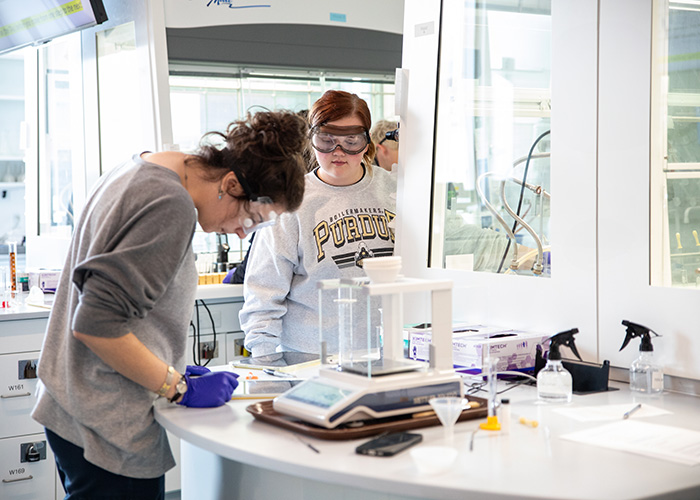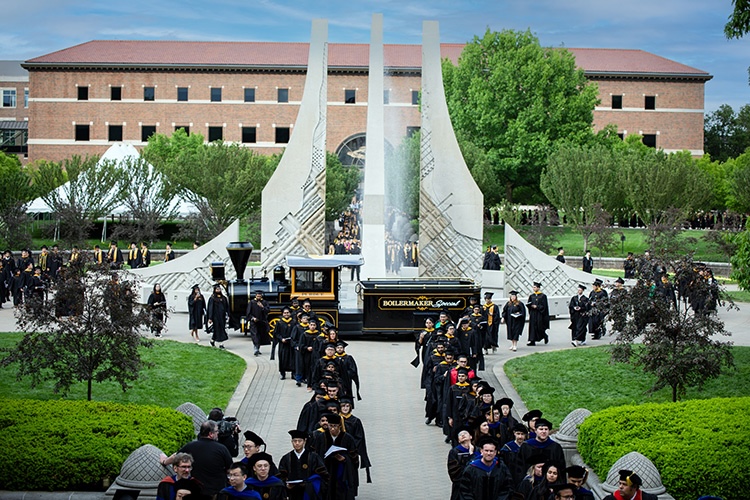About the College

Purdue University's College of Science encompasses the physical sciences, life sciences, computational sciences, mathematics and data science. We are a community of educators, learners and leaders in the persistent pursuit of the scientific and mathematical knowledge that leads to innovation.
Purdue scientists have made a difference in the history of discovery and invention. It's been that way since 1875 when the first degree awarded by Purdue University was a bachelor's degree - in chemistry.
Today, the broad scope of science at Purdue is our strength. Our faculty and students are working on discoveries like the structure of the SARS-CoV-2 virus, improving health care through improved diagnostics and individualized medicine, searching for dark matter, refining artificial intelligence methods, pushing the boundaries of Mars exploration and finding routes to sustainability in a rapidly-changing environment.

The leadership of our renowned scholars and researchers has created a culture of discovery and innovation in the college. There is an expectation that knowledge will be shared and that students, both undergraduate and graduate, will be involved in research.
Home to the first Department of Computer Science in the U.S. (1962), the college continues to lead the way in data science, information security, programming, networking, databases and software engineering.
The college provides foundational science and mathematics instruction to Purdue students from all majors. All students develop an essential understanding of science and critical thinking skills that will inform their decision-making throughout their lives.
Notable
- Two Nobel Laureates: Ei-ichi Negishi (2010) and Herbert C. Brown (1979)
- Two National Academy of Sciences members on faculty: Chris Greene (2019, Physics) and R. Graham Cooks (2015, Chemistry)
- Drew Feustel, NASA Astronaut, BS'89, MS'9, HDR'18
- Rita Colwell, First female director of the National Science Foundation, 1998-2004, BS'56, MS'57